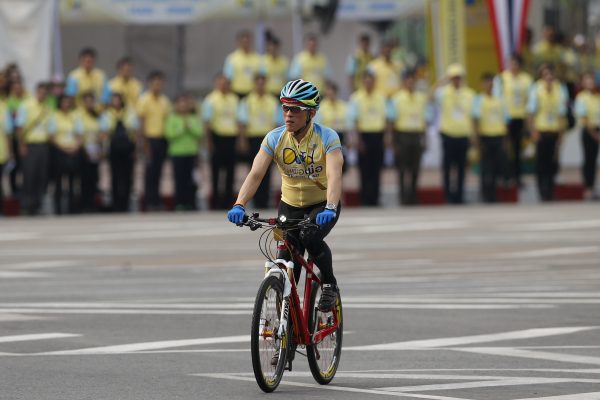King Bhumibol was first hospitalised in 2009. His deteriorating health became a concern not only among the Thai power holders but also among domestic businesses and foreign investors. The king’s illness represented one of the driving forces behind the 2014 coup with the military wanting to ensure that the royal succession would be beneficial to old elites.
Earlier in 2016, the military government under Prime Minister Prayuth Chan-ocha was tasked with accomplishing two missions.
First, the junta commissioned a committee to complete the constitution in order to prolong its rule and prevent powerful Shinawatra factions from returning to politics, which ironically would serve to reduce the power of future civilian governments.
To further legitimise this constitution, the junta held a referendum in which — to many people’s surprise — the constitution was popularly approved, further entrenching the military’s position. Although some Thais disagreed with the content of the constitution, they willingly endorsed it in the referendum — they wanted the election to come soon, rather than having to endure the junta for much longer should the constitution be rejected.
The other task of the junta was to publicly reaffirm the enthronement of Crown Prince Maha Vajiralongkorn, the only heir-apparent who was eligible to be crowned. Rumours and gossip swirled around the kingdom of a possible sabotage against the Crown Prince, purportedly spearheaded by General Prem Tinsulanonda — President of the Privy Council — with whom the Crown Prince is known to not get along.
It is true that some Thais may have preferred to see the more popular Princess Maha Chakri Siridhorn crowned instead of her controversial brother. That fact made rumours that Prem could instigate for Sirindhorn to become enthroned far more credible.
In response, the Prayuth government decided to kill all rumours by announcing — only hours after Bhumibol died — that the Crown Prince would be the next king. Prior to the transition, the junta helped craft a more acceptable image of the Crown Prince as part of preparing the latter to succeed his father. For example, in 2015 the junta sponsored two major events — Bike for Mom (August) and Bike for Dad (December) — on behalf of the Crown Prince. Vajiralongkorn led the crowds riding his bicycle through the streets of Bangkok hoping to gain love and loyalty from the people.
Meanwhile, the Crown Prince has begun to put his trusted men into key positions in the palace. This process had started before Bhumibol had even passed away, signalling that the succession took place even prior to the end of his father’s reign. He degraded and demoted those who had worked for his father in the past, and introduced new faces to manage important offices, including the Crown Property Bureau.
At the same time, Vajiralongkorn eliminated his enemies — sometimes through ruthless means. For example, Suriyan ‘Moh Yong’ Sucharitpolwongse — the famed fortune-teller — died mysteriously in prison while under charges of exploiting the name of the Crown Prince for his own benefit.
From the above events, one could conclude that the military is working with Vajiralongkorn to make sure that the royal transition does not trouble their interests. But his newfound partnership may not contribute positively toward the future of democracy in Thailand.
In December, Vajiralongkorn was officially pronounced as King Rama X, succeeding his father. The era of Bhumibol formally came to an end. But this new reign of Vajiralongkorn also brings about uncertainties. While it is too soon to predict what the Vajiralongkorn reign will look like, his views on royal and political affairs will likely guarantee complications in the years ahead.
Vajiralongkorn’s friendship with the military will surely obstruct the pace of democratisation in Thailand. Up to this point, there has been no indication that Vajiralongkorn is interested in promoting democracy. On the contrary, he continues to rely on the draconian lèse-majesté law to silence those who criticise his personality and lifestyle. The increased use of this law under his reign will negatively affect the human rights situation in Thailand.
Unless the new king understands the need for the monarchy to reform, the royal institution in Thailand will be put at risk.
Pavin Chachavalpongpun is an Associate Professor at the Center of Southeast Asian Studies, Kyoto University and a Visiting Fellow at the Center for Southeast Asian Studies, University of California, Berkeley.
This article is part of an EAF special feature series on 2016 in review and the year ahead.

